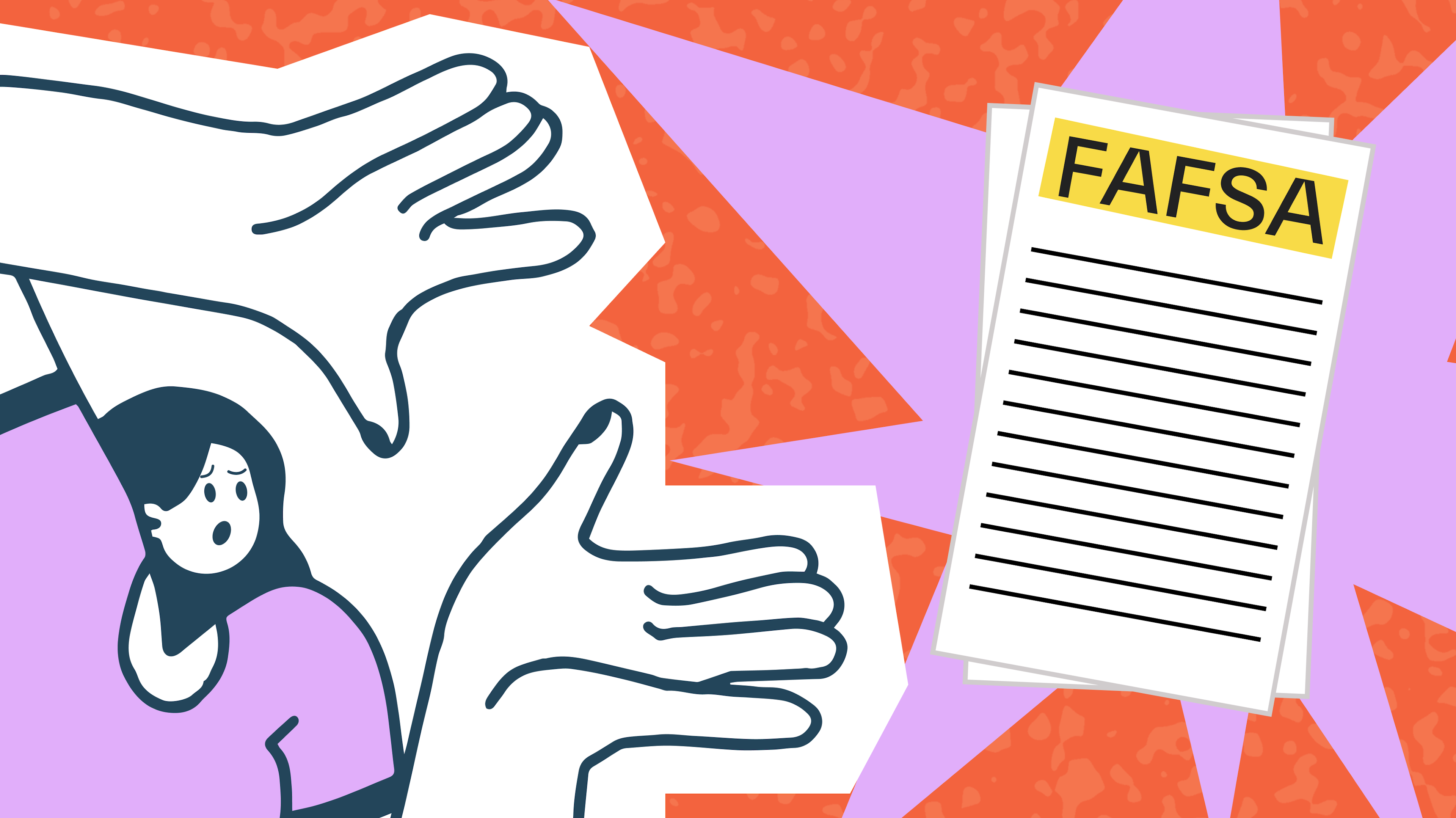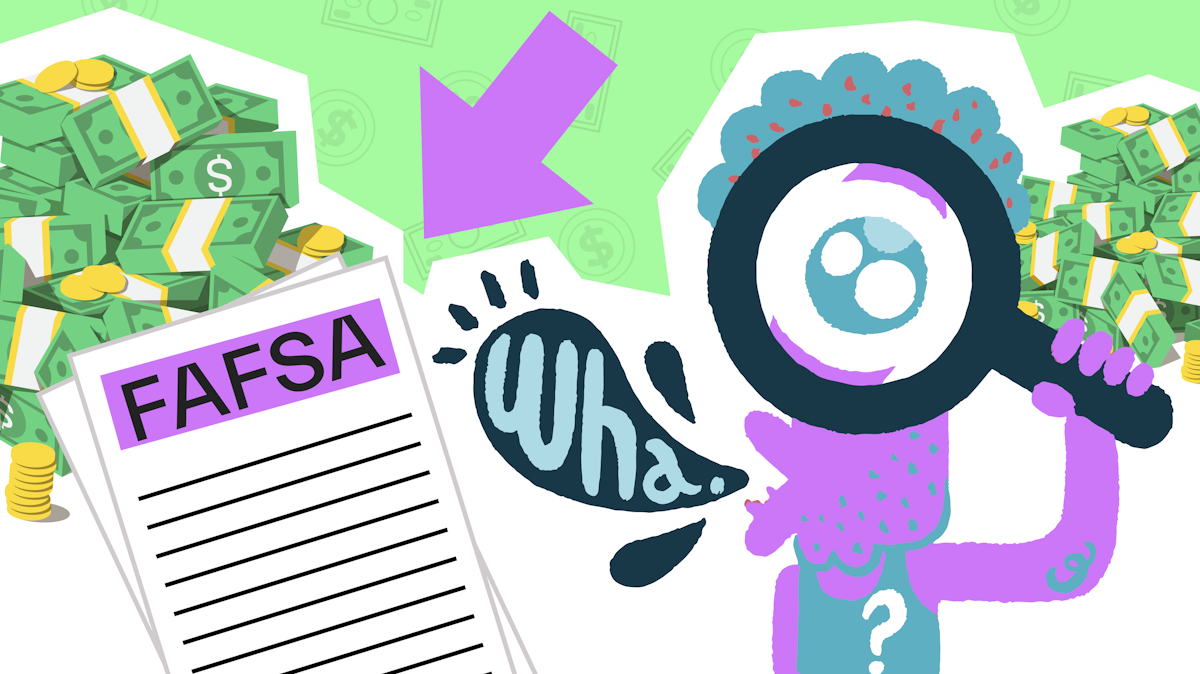FAFSA •
December 15, 2023
Not eligible for FAFSA? Here’s how you can still get financial aid
Even if you're not eligible for FAFSA, you might still options available.

If you aren’t eligible for the Free Application for Federal Student Aid (FAFSA), it can be hard to get financial aid for college—especially if you’re a Deferred Action for Childhood Arrivals (DACA), undocumented, or international student.
If you fall into any of these categories, however, you still have options.
We asked Rima Mira, a financial aid expert and an Advisor at Mos, about the best tuition strategies for students who can’t submit FAFSA.
Here are the three areas she said to focus on:
State aid:
For non-U.S. citizens, including DACA students, your eligibility for this kind of aid varies from state to state.
Your state might have aid programs that don't require FAFSA, or have their own special applications. For example, students in Texas can fill out the Texas Application for State Financial Aid (TAFSA).
Many states consider DACA students eligible for in-state tuition. Some states also give them access to state-funded aid.
The states that offer some kind of financial aid to undocumented students are:
California
Colorado
Maryland
Minnesota
New Jersey
New York
Oregon
Rhode Island
Texas
Virginia
Washington
2. Institutional Aid:
Colleges often give out scholarships that don’t require you to be eligible for FAFSA and don’t depend on your citizenship status.
Usually they grant these awards for some kind of accomplishment, like your academics or extracurriculars.
Schools can also give out scholarships based on need. If you’ve had any kind of life event that’s made it harder to pay tuition—like an unexpected medical bill or a job loss—you can tell your school about it and they’ll often try to help you out.
To gather information about a school's financial aid policies for non-FAFSA-eligible students, check their website and contact their financial aid office.
When you apply to a school, ask about their financial aid options. The admissions office is there to help you, and they know how hard it can be to cover your costs without FAFSA. Once they know about your unique situation, they can give you a full rundown of your options.
Once you know what kind of aid they offer, you can negotiate for more of that aid based on your achievements, extracurricular involvement, contributions to the school’s community, and need.
You should also check whether any scholarship you apply to has a priority deadline. If you apply before that deadline, you can usually get more aid than you’d get if you waited.
If you can’t get institutional scholarships, you can also ask for a discount on your tuition, which schools do grant from time to time.
3. Private Scholarships:
Lots of organizations, foundations, and businesses give out private scholarships, and lots of those scholarships don’t require you to be a U.S. citizen or eligible for FAFSA.
Some scholarships are specifically aimed at supporting DACA students or international students, like:
International Student Scholarship, provided by KoraDrive
If you need more help paying for school, Mos has several programs open to non-U.S.-citizen students. Our advisors will help you find the scholarships that best fit your personal situation.
Sources:
https://nces.ed.gov/pubs2018/2018061.pdf
Let's get
your money
- Get paired with a financial aid expert
- Get more money for school
- Get more time to do you




